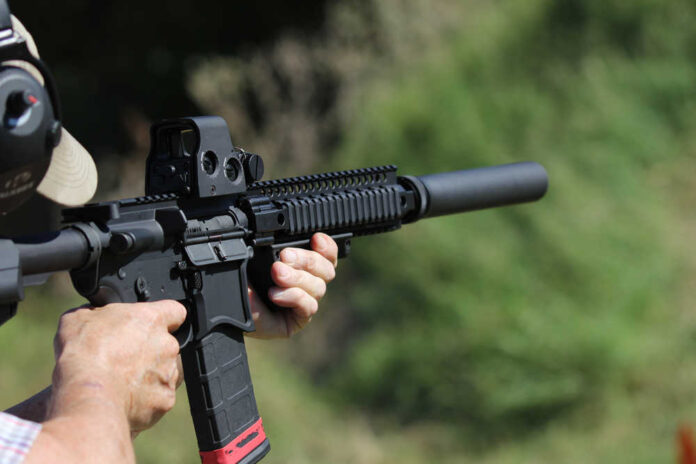
In a striking blow to gun control advocates, a federal appeals court on Friday ruled against the ban on bump stocks. These are accessories added to guns that permit a faster firing rate for semi-automatic weapons.
The addition allows the gun’s own stock to move backwards and forwards, which in turn takes advantage of the firearm’s natural recoil to fire more quickly.
In its 13-3 decision, the U.S. Court of Appeals for the Fifth Circuit ruled that the regulation created under former President Donald Trump’s administration overstepped agency authority.
Reuters reported the judges indicated that gun control actions fall under Congress’s authority rather than the executive branch. Those siding with the majority were largely appointed by Republican presidents, while those opposing were Democratic appointees.
NEWS: Appeals Court Strikes Down Bump Stock Ban in 13-3 Decision
More from @AWRHawkins/@BreitbartNews ⬇️ https://t.co/14LV9NpeCd
— NRA (@NRA) January 7, 2023
The Bureau of Alcohol, Tobacco, and Firearms (ATF) enacted the rule after a shooter used bump stocks to murder 58 people at an outdoor Las Vegas concert in Oct. 2017.
The assailant fired from a high-rise hotel window and used rifles with bump stocks to shoot over 1,000 rounds in just over 10 minutes. He shot into a fenced event attended by 22,000 fans.
The appeals court declared that ATF officials acted under intense public pressure after the horrific shooting. Judges ruled the agency bypassed the legislative process while not being authorized by Congress to do so.
The ATF extended the federal government’s ban on machine guns to include bump stocks in 2018. It used definitions enacted by the National Firearms Act of 1934 and the Gun Control Act of 1968.
But the appeals court disagreed. U.S. Circuit Judge Jennifer Walker Elrod, writing for the majority, noted the law did not provide “fair warning that possession of a non-mechanical bump stock is a crime.”
She wrote that a simple reading of the statutory language along with an understanding of the operations of a semiautomatic weapon clearly showed the bump stock is excluded from earlier technical definitions of a machine gun.
The ban was also supported by the Biden White House. It was upheld in Dec. 2021 by a three-judge 5th Circuit panel. The court ruled against Texas gun owner Michael Cargill, who filed suit opposing the regulation.
Friday’s decision reversed the lower court ruling.
Undoubtedly the Supreme Court will have the final say in the case which pits Second Amendment advocates against those who would use regulations to strip away gun rights. And the high court currently shows every indication of following the Constitution and protecting gun owners.
































